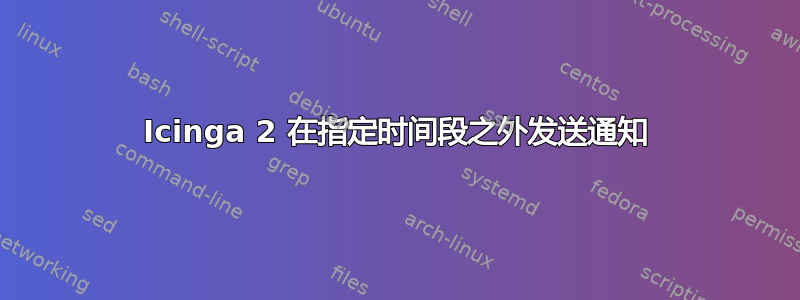
我尝试在不同的时间段发送不同的通知,基本上我想在工作时间发送所有通知,但只在下班时间发送标记为紧急的主机的通知。
apply Notification "mike-on" to Host {
import "mail-host-notification"
users = [ "sms" ]
period = "mikehours"
assign where host.vars.notification.mail
}
apply Notification "mike-off" to Host {
import "mail-host-notification"
users = [ "sms" ]
period = "nonmikehours"
assign where host.vars.emergency == true
}
SMS 只是一个联系人,电子邮件设置为[电子邮件保护],时间段定义如下
object TimePeriod "mikehours" {
import "legacy-timeperiod"
display_name = "Mike's work hours"
ranges = {
"monday" = "06:00-23:00"
"tuesday" = "06:00-23:00"
"wednesday" = "06:00-23:00"
"thursday" = "06:00-23:00"
"friday" = "06:00-23:00"
"saturday" = "07:00-22:00"
"sunday" = "07:00-22:00"
}
}
object TimePeriod "nonmikehours" {
import "legacy-timeperiod"
display_name = "Mike's off hours"
ranges = {
"monday" = "00:00-06:00,23:00-24:00"
"tuesday" = "00:00-06:00,23:00-24:00"
"wednesday" = "00:00-06:00,23:00-24:00"
"thursday" = "00:00-06:00,23:00-24:00"
"friday" = "00:00-06:00,23:00-24:00"
"saturday" = "00:00-07:00,22:00-24:00"
"sunday" = "00:00-07:00,22:00-24:00"
}
}
然而,即使在指定的工作时间之外,我仍然会通过短信收到所有通知。
答案1
应用规则是自行评估的。如果您的分配/忽略 where 表达式匹配(例如“assign where host.vars.notification.mail”可能匹配所有主机),它们将生成一个通知对象。通过“对象列表”或 rest api 端点 /v1/objects/notifications 验证。第二个应用规则仅匹配您设置的自定义属性,并添加一个额外的通知对象。所以你评论的解决方案完全没问题。
顺便说一句,您可以省略“== true”比较。Icinga 2 会自动为布尔属性假定这一点。
答案2
我发现这个解决方案对我有用:
apply Notification "mike-on" to Host {
import "mail-host-notification"
users = [ "sms" ]
period = "mikehours"
assign where host.vars.notification.mail && !host.vars.emergency
}
apply Notification "emergency" to Host {
import "mail-host-notification"
users = [ "sms" ]
period = "24x7"
assign where host.vars.emergency == true
}
我仍然很想知道为什么我原来的解决方案失败了,但无论如何这是一个更好的方法。


